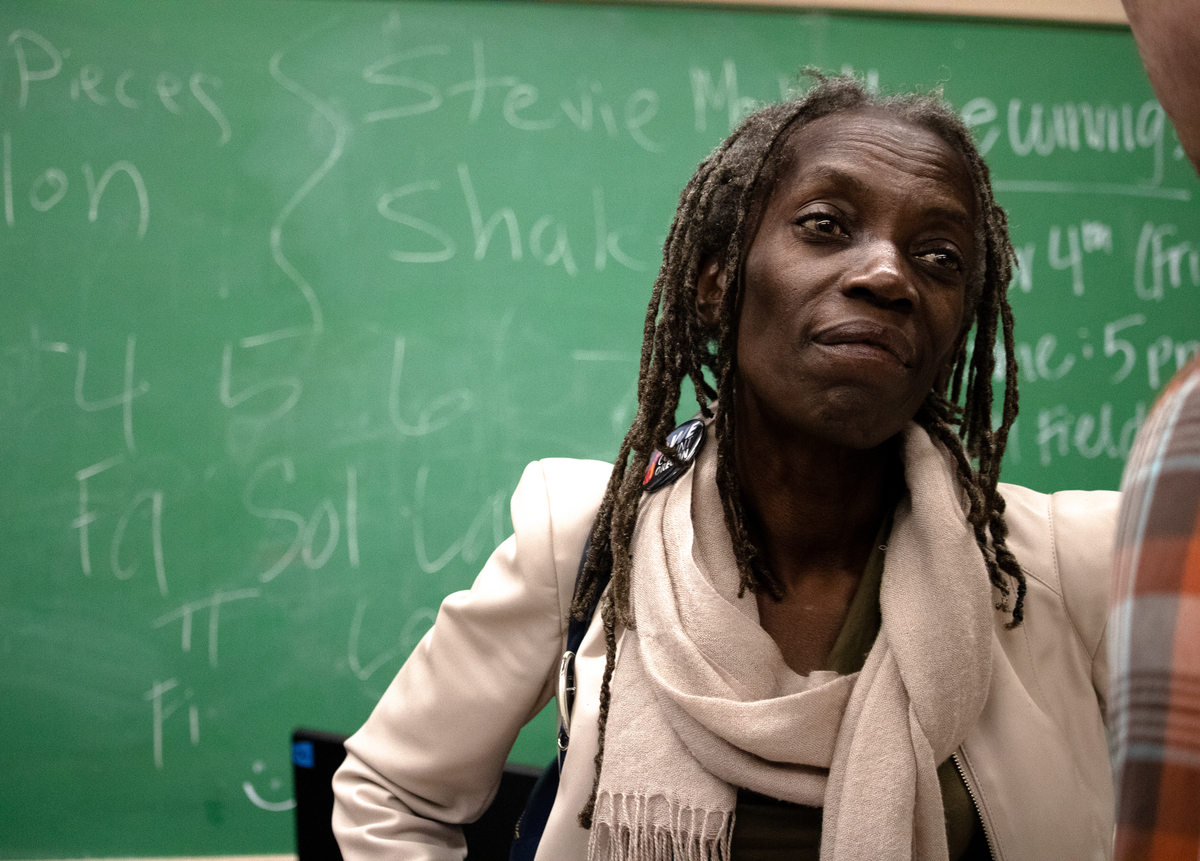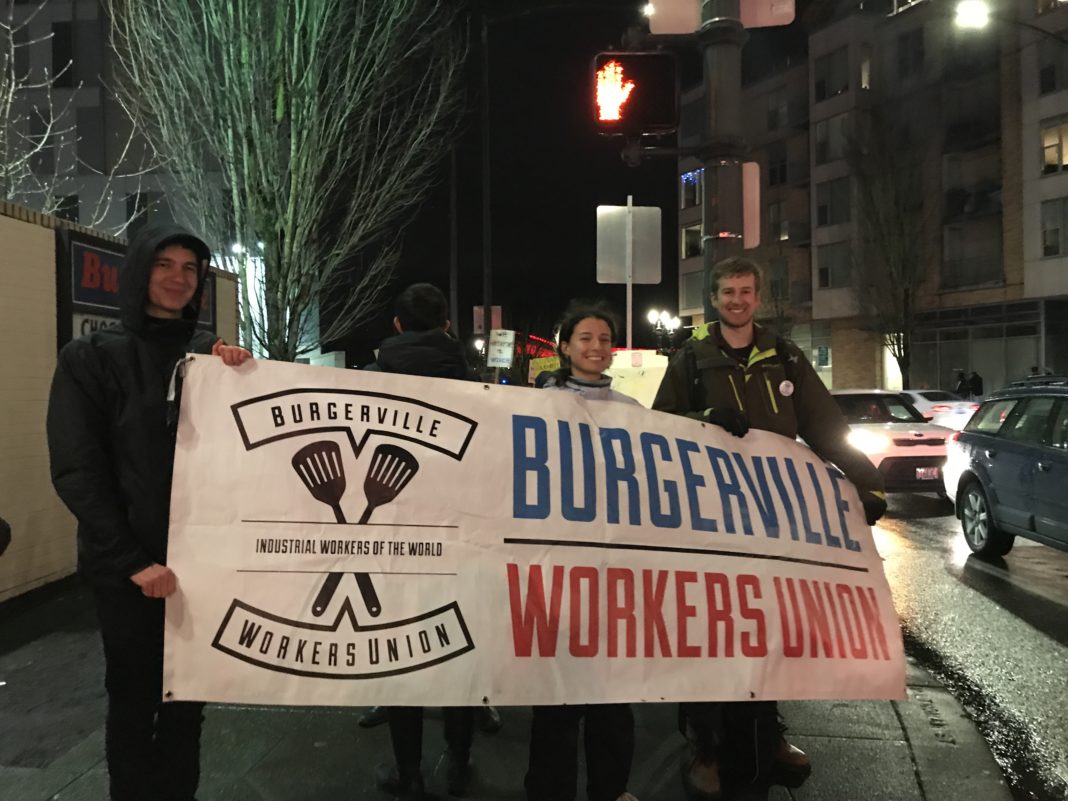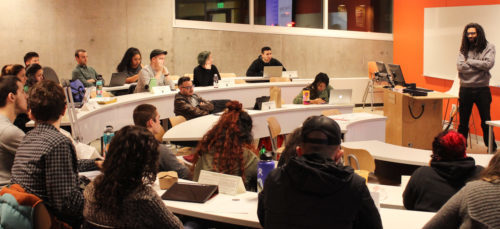All it takes to end houselessness is to get rid of one aircraft carrier, according to Congresswoman Rashida Tlaib who represents Michigan’s 13th district.
On Jan. 25, a packed Jefferson High School auditorium in Northeast Portland erupted with standing ovations while hosting a congressional housing justice town hall featuring Tlaib and Oregon’s own Congressman Earl Blumenauer. The town hall was an official congressional event that allowed Portlanders to express their concerns regarding the current housing crisis.
“[Tlaib] is the first Muslim woman to serve in the Michigan legislature and one of two Muslim women elected to congresss,” said Deborah Kafourey, Multnomah County chair, who gave an introduction at the event.
Tlaib is also a member of “the squad”—an informal group of congresswomen that includes Tlaib as well as Congresswomen Alexandria Ocasio-Cortez, D–N.Y., Ilhan Omar, D–Minn. and Ayanna Pressley, D–Mass.
“I’m kinda nicknamed among the squad as the mama bear because I’m the eldest of 14,” Tlaib said. “I have seven younger brothers [and] six younger sisters and they really have equipped me with everything I need to take on the biggest bully in the world right now.”

While waiting outside Jefferson High for town hall to begin, Portland State alumni Willis Homann gave his reason for attending: “Houselessness is such a big issue in Portland, and I want to see what some of our elected officials are doing about it.”
Robert Heard, also a PSU alumni, wanted “to see what our representatives thoughts and feelings are towards the homeless situation. Not only in our city, but in America in general.”
Heard is a housing specialist who works for a local nonprofit. “I help folks in the shelter get back into housing,” Heard said.
In order to afford a one-bedroom apartment, a Multnomah county resident needs to earn an hourly wage of $23.73, much more than Portland’s current $12.50 minimum wage, according to the National Low Income Association’s “Out of Reach” report.
“Let me be clear,” Blumenauer said after thanking attendees. “The housing crisis is…not an accident. This crisis is the result of a series of misguided policies, blatant discrimination [and] short-sightedness.”
Blumenauer went on to say: “Discrimination against homeownership is the largest single source of income inequality in this country.” Blumenauer recommends “[incentivizing] caps on rent increases” as well as “triple the funding for housing for the elderly and people with disabilities” as ways to end this discrimination.
In response to critics who say the government can’t afford housing legislation, Blumenauer suggests reforming tax incentives for developers and the mortgage interest deduction that currently “[funnels] the benefits to the top 5% of the population.”
As applause for the congresswoman quieted, Tlaib shared her experience working with a southwest Detroit neighborhood near an oil refinery. Many community members suffered from respiratory illnesses.
“We’re literally the frontline community of what doing nothing looks like on these issues, especially on housing,” Tlaib said.
Tlaib’s district is the third poorest of the 435 in the House of Representatives.
Despite the statistics, Tlaib said her district was able to raise homeownership among African Americans from 7% to 50% and those renting are only paying 20–30% of their income toward rent.
Tlaib promoted the Building Our Opportunities to Survive and Thrive (BOOST) Act and intended to fund the act by repealing President Trump’s 2017 tax cut, which Tlaib referred to as a “shareholder payment plan.”
“The largest transfer of wealth in American history was the republican tax cut,” Blumenauer said. “[The tax cut] gave too much to the wrong people…it created zero jobs.”
According to Tlaib’s congressional website, the BOOST Act is meant “to address poverty and provide relief for low- and moderate-income households by introducing a new tax credit for working class individuals and families.”

The town hall opened up to a question and answer session. Portlanders’ questions covered such subjects as regional housing actions, labor protections in legislation and mortgage interest deductions.
Homann was able to ask how the representatives planned to reintegrate those who have faced traumas associated with houselessness.
Tlaib didn’t have a solution but acknowledged that houseless trauma is a serious issue and would like to see a facility like urgent care that can properly treat the symptoms of houseless trauma.
“I’m still struggling to figure out how to do that,” Tlaib said. “I don’t think we have had a full conversation about what that looks like.”

After the town hall, Portland City Commissioner Jo Ann Hardesty—who was among the attendees—said in a brief interview: “I’m so excited that [Tlaib] is joining Earl around housing first…and really identifying what affordable housing really looks like, [because] on Portland City Council I ask that just about every week.”
In a similar interview, Tlaib was asked what she would say to a college student struggling to get by during the housing crisis.
Her response: “I just want them to know there’s an incredible movement that talks about structures versus policies and we’re taking a deeper dive into dismantling what I think is painful economic oppression.”






